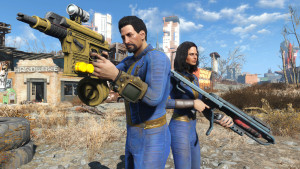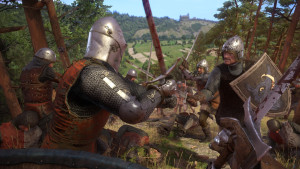Please support Game Informer. Print magazine subscriptions are less than $2 per issue
Civilization VI Coming October 21, Big Changes To Core Gameplay
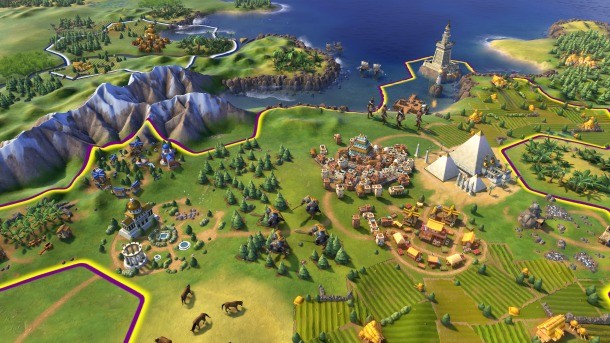
Civilization VI comes to PC on October 21. I spoke with lead designer Ed Beach and associate producer Sarah Darney on the project to nail down some big changes coming to the classic strategy franchise for its sixth installment.
“One of the first principles with Civilization VI was to keep most of the subsystems from the finished (with expansions) Civ V around in some form,” Beach says. “Civ VI builds off a lot of the design that Civ V finished with, but the code and the A.I. and everything like that is all implemented from scratch to fit Civ VI.”
“We want players to adjust and think on their feet in Civ VI. We didn’t want there to be a standard playbook or recipe on how to get through it, from tech tree to policy,” Beach adds. “We always saw discussions about dominant strategies, like, 'Get the Great Library and go into these policy trees and build this way.' We built a game with so many options, but so much of the community is playing it this same way with the same pattern, and we want to shake that up and adjust to the map and leaders they are faced with to come up with other solutions, to rethink their strategic approaches every time they play the game.”
The team laid out the plan for three key core mechanics changes that will drive more dynamic gameplay in Civilization VI.
The first is “unstacking the cities. With cities getting filled with all kinds of buildings, wonders, and other things over time, the gameplay is changing by moving some of these buildings out onto the map. This concept is called districts, and these are pieces of your city that would traditionally be nested inside your city being pushed out up to three tiles away.
“For instance, let’s take the science district,” Beach says. “This is a prerequisite to building science buildings. What’s going to happen is that the exact tile you choose to place that district will be an important decision, as scientists will work better in different tiles. So tiles with more lifeforms like rain forests or something on a mountain to observe the stars would be more valuable. We have 12 different kinds of districts you can place around your city. They require a certain amount of population, so you are going to have to make choices about what kind of districts to build based on what resources you have available.”
The second is the active research system. This will change up the way players approach the tech tree by offering massive bonuses toward specific research based on other variables in the game, pushing players away from going into a game with a set path of tech that they always progress down for the optimal game build. Players can still research whatever they like, but a new boost system will likely change your progression path from game to game.
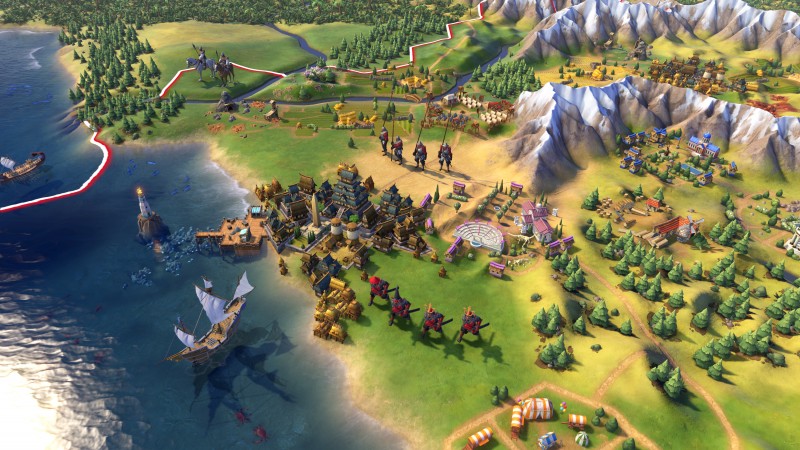
“Let’s take masonry. In order to do masonry well you need the type of materials to put together for walls or pyramids or whatever,” Beach says. “So if you’re in the middle of a grassland and there’s no stone around, it’s going to be tough for you to be really good at masonry. So if you can find a resource like that, like a quarry, as soon as it’s up and operational, we unlock a boost toward masonry, which will give you 50 percent of the cost for that technology. Similarly, this will work for say maritime technology for setting up on the coast. If you’re on the coast putting in the time on those areas, you’re now getting bonuses for those technologies. That part of the tech tree will naturally unlock for you as a result of the boost.”
“A lot of it is based on the map and what’s around you,” Darney says. “So it changes each game.”
Third is diplomacy, a constant hot topic in the Civilization series. A big focus here is how the A.I. will react and relate to the player. The leaders in Civilization VI will play differently based on their own personalities and not just based on how the player interacts with them – they have their own specific agendas.
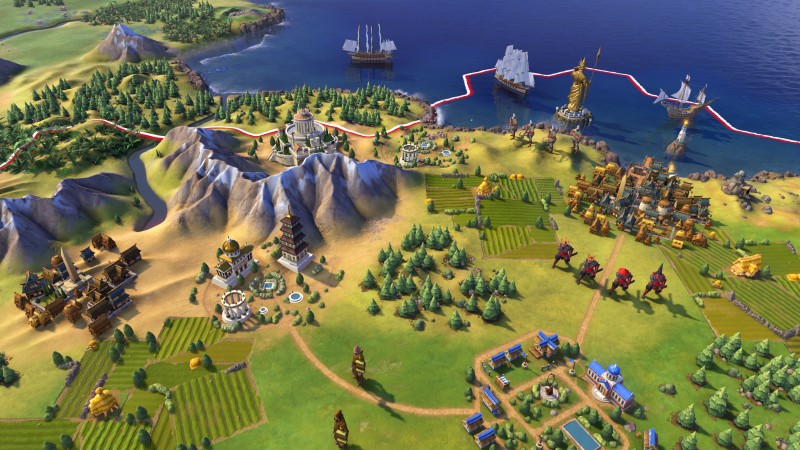
“Every leader is assigned one historical agenda based on something they did while ruling their nation in actual history,” Beach explains. “Let’s take a leader who built a whole bunch of wonders. In our universe, that leader is going to feel like he’s better than anyone else in world history at building wonders, and that should be reflected every time they are in a Civilization game. Wonder obsessed. So that civilization will get a bonus toward building wonders, but they also get an obsessive personality where he will get angry if anyone else is building more wonders than they are. So you might have a strategy where you always go for Stonehenge and Hanging Gardens so you grab those right away. If this guy is next to you and he sees you doing this, he’s going to be up in arms and invading your borders."
Leaders will also have a hidden agenda that will be assigned to them that will change from game to game, so even if you know the opposing leader's core personality, you have to discover additional, dynamic traits if you want your political agendas to progress smoothly.
There will be a new emphasis on shorter sessions for multiplayer that will facilitate getting games in well under the traditional 5-10 hour mark. There also will be new ways to engage with multiplayer that can be completed in one or two hours. Other significant new features and mechanics are coming in Civilization VI, but the team wasn’t ready to discuss them at this time.

